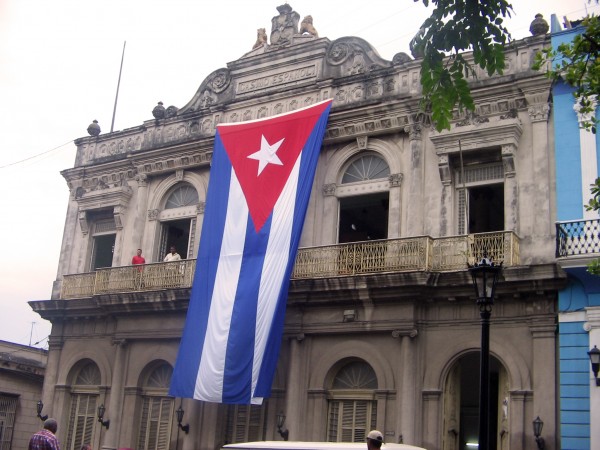
As the U.S. and Cuba bridge the 90-mile and 55-year gap between the two nations, SUNY New Paltz stands at the forefront of an international academic milestone.
Bruce Sillner, Dean of International Programs, is in Cuba this week along with a delegation from 11 other higher educational institutions. The Institute of International Education, (IIE), is hosting the excursion which aims to use academics to further normalize American-Cuban relations.
“In our face-to-face meetings with Cuban educators, we have found that the desire to develop partnerships with U.S. colleges and universities is strong,” said Allan Goodman, IIE’s president and CEO. “The reestablishment of relations between the United States and Cuba paves the way for student and faculty exchange in both directions and allows for joint research that will benefit both of our societies and the world we share.”
Daniel Obst, IIE’s deputy vice president, has been tasked with handling their International Partnerships in Higher Education. Obst also oversees the International Academic Partnership Program, (IAPP).
“IIE has always been at the forefront of meeting with countries that the U.S. may not have great relations with,” Obst said. “Luckily for us, there was a great desire from both the U.S. and Cuba to engage in some sort of partnership. Education can play a key role in opening dialogue between countries. ”
For IIE, the desire to coordinate with Cuba began in 2014, around the same time that President Obama announced that he was moving to normalize relations with the Caribbean island nation. What began as an exploratory trip with an envoy of two officials from IIE, soon escalated into meetings with the Ministry of Education, talks with stakeholders and the development of an agenda for the future. Ultimately, after much traveling and internal discussion, IIE began negotiations with the Cuban government.
When the plan was finalized for this delegation trip to Cuba, IIE opened up the application process to colleges in both the U.S. and Cuba. The institutions that applied then went through a six month strategic planning process. Obst said it was gratifying to see U.S. involvement coupled with the commitment and interest from Cuba. The academic goals for the two nations ranges from joint scientific research to polytechnic schools, medical schools and art schools.
Obst said it is the hope of IIE that more faculty and students will study abroad in Cuba. According to Obst, during the 2012-13 academic year approximately 1,700 students studied abroad in Cuba. Over the past academic year there was an uptick in participation rates. Obst said he was most impressed by the variety of fields that students are embracing and studying while abroad. These include language and culture but also printmaking, photography and public health.
In response to critics of normalizing relations with Cuba and lifting the embargo, Obst said that global challenges require a global response.
